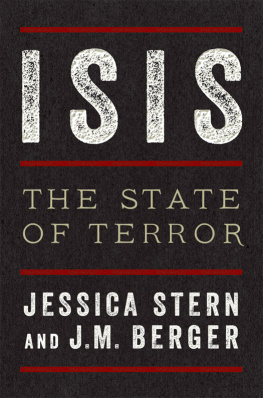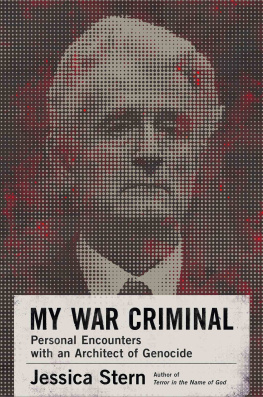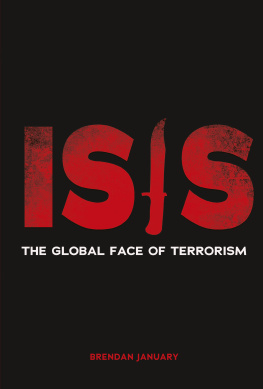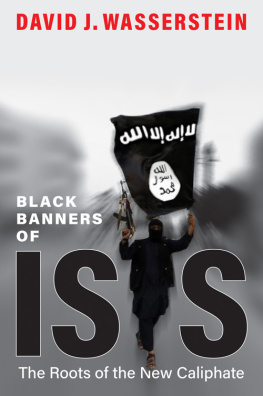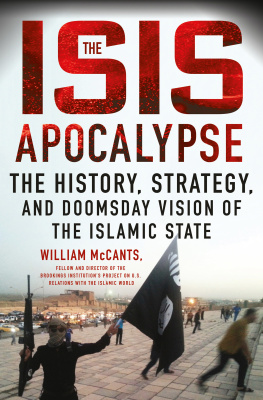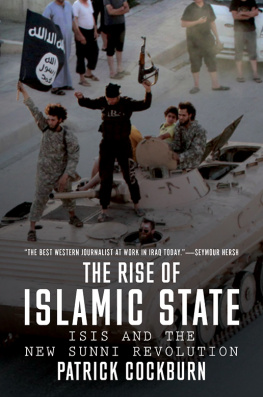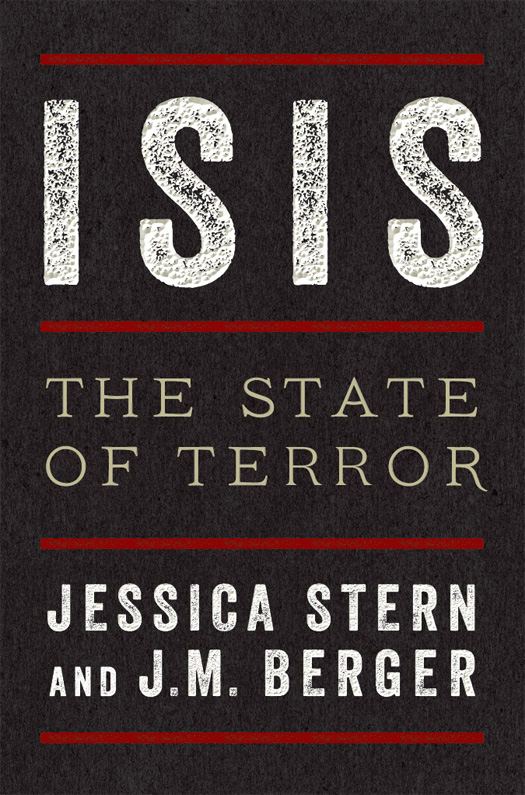| March 20, 2003 | President George W. Bush announces the start of war against Iraq. |
| April 9, 2003 | U.S.-led invasion topples Saddam Husseins government in Iraq. |
| May 2003 | Zarqawi-led group called the Organization of Monotheism and Jihad begins operations in Iraq. |
| August 2003 | Zarqawis group bombs United Nations headquarters in Baghdad. |
| April 2004 | Hundreds are reported killed in fighting during the monthlong U.S. military siege of the Sunni Muslim city of Fallujah. |
| April 2004 | Photographic evidence emerges of abuse of Iraqi prisoners by U.S. troops in Abu Ghraib prison near Baghdad. |
| May 2004 | Zarqawi begins videotaped beheadings in Baghdad. |
| June 2004 | United States hands sovereignty to Iraqs interim government headed by Prime Minister Iyad Allawi. |
| October 2004 | Zarqawi swears loyalty to Osama bin Laden and founds al Qaeda in Iraq (AQI). |
| January 2005 | AQI starts a campaign of public beheadings on the streets of Iraqi cities. |
| April 2005 | AQI becomes a foreign fighter magnet and targets Shia, much to the concern of bin Ladens al Qaeda. |
| May 2005 | Surge in car bombings, bomb explosions, and shooting in Iraq. |
| October 2005 | Voters approve a new constitution, which aims to create an Islamic federal democracy in Iraq. |
| December 2005 | Iraqis vote for the first, full-term government and parliament. |
| February 2006 | Bombing of the Shia al Askari Mosque in Samarra, Iraq; full sectarian conflict ensues. |
| April 22, 2006 | Newly reelected president Jalal Talabani, a Kurd, asks Shia compromise candidate Nouri al Maliki to form a new government in Iraq, ending months of deadlock. |
| June 2006 | Zarqawi killed in U.S. military air strike. |
| October 2006 | Islamic State of Iraq (ISI) is formed; Abu Omar al Baghdadi named new leader. |
| December 2006 | Saddam Hussein is executed by the Iraqis in Camp Justice, a joint Iraqi-American base in a suburb of Baghdad, for crimes against humanity. |
| January 2007 | U.S. military surge and Sunni Awakening begin to greatly diminish ISI. |
| January 2008 | The Iraqi parliament passes legislation allowing former officials from Saddam Husseins Baath party to return to public life. |
| March 2008 | Prime Minister Maliki orders crackdown on militia in Basra, sparking pitched battles with Moqtada al Sadrs Mehdi Army, a Shia militia group. |
| May 2008 | Relentless pressure on ISI and other groups by the U.S. military and government of Iraq results in lowest levels of violence since 2005. |
| September 2008 | U.S. forces hand control of Anbar province, once an insurgent and al Qaeda stronghold, to the Iraqi government. This is the first Sunni province to be returned to the Shia-led government. |
| January 2009 | Prime Minister Maliki targets Sunni leaders and Awakening groups, increasing sectarian tensions and latent support for ISI in Sunni tribal areas. This lessens the pressure on ISIS, allowing it to stave off disaster. |
| August 2009 | ISI bombs Iraqi ministries of Foreign Affairs and Finance, killing hundreds. |
| Fall 2009 | Abu Bakr al Baghdadi released from United States Camp Bucca in Iraq in 2009 when the camp is officially closed. |
| April 2010 | ISI leaders Abu Omar al Baghdadi and Abu Ayyub al Masri (aka Abu Hamza al Muhajir) are killed in U.S.-led air strike. |
| May 2010 | Abu Bakr al Baghdadi named leader of ISI. |
| March 6, 2011 | In the city of Daraa, Syria, near the Jordan border, nearly a dozen boys under the age of fifteen are arrested for anti-regime graffiti. Protests break out in Syria beginning in Daraa, but quickly spreading to neighboring villages. |
| April 21, 2011 | President Assad issues a decree to end Syrias nearly fifty-year-old state of emergency in hopes of quelling the rising protests. |
| May 2, 2011 | Al Qaeda Central leader Osama bin Laden is killed by U.S. special forces in Abbottabad, Pakistan. |
| May 28, 2011 | Hamza al Khatib, a thirteen-year-old boy who was detained during protests in Syria, is delivered to his family as a mutilated corpse, exposing the brutality of the regime. |
| June 3, 2011 | In response to the release of Hamzas body, thousands flood the streets for the Friday of the Children protest. The regime responds by blocking access to the Internet from within Syria. |
| June 14, 2011 | The Arab League condemns the Syrian crackdown for the first time. |
| August 2011 | Saudi Arabia, Kuwait, and Bahrain recall their ambassadors to Syria. Leaders from the United States, France, Britain, and Germany call on Assad to resign. |
| December 2011 | The United States concludes its operations in Iraq. The unity government immediately faces disarray, and Maliki issues an arrest warrant for Vice President Tariq Hashimi, a leading Sunni politician. The Sunni bloc boycotts parliament and the cabinet. |
| January 6, 2012 | General Mustafa Ahmad al Sheikh, the highest-ranking person in the Syrian military to defect, joins the Free Syrian Army. He reveals that at least twenty thousand soldiers have already defected. |
| February 12, 2012 | Ayman al Zawahiri calls on all Muslims to help overthrow Assad. |
| June 16, 2012 | The United Nations suspends its monitoring mission in Syria because it is too dangerous to continue operations. |
| June 2012 | ISI releases the first installment in its popular video series, The Clanging of the Swords. |
| July 2012 | ISI announces the initiation of Breaking Down the Walls campaign, to refuel the group by freeing members from Iraqi prisons and by regaining lost ground. |
| August 2012 | President Obama declares, amid rumors of chemical weapons use in Syria, that chemical weapons are a red line for action. |
| September 16, 2012 | Iran confirms units of its Revolutionary Guard are helping Assad. |
| December 2012 | Sunni Muslims in Iraq stage mass rallies across the country over several months, protesting perceived marginalization by the Shia government. |
| February 28, 2013 | United States promises nonlethal assistance to Syrian rebels. |
| March 2013 | Jabhat al Nusra becomes dominant in rebel areas. |
| March 10, 2013 | Islamist groups set up Eastern Council, consolidating control of eastern Syria. |
| April 2013 | The ISI announces that Jabhat al Nusra is its official Syrian offshoot and henceforth the merged group shall be known as the Islamic State of Iraq and Syria/Sham (ISIS). Al Nusra immediately rejects the statement and appeals to al Qaeda Central for judgment. |
| April 18, 2013 | Britain and France claim chemical weapons have been used in Syria. |
| April 2013 | Iraqi troops storm an antigovernment protest camp in Hawija, near Kirkuk, leaving more than fifty dead. This sparks Sunni outrage and the insurgency intensifies. By summer the country has entered full-blown sectarian war. |

